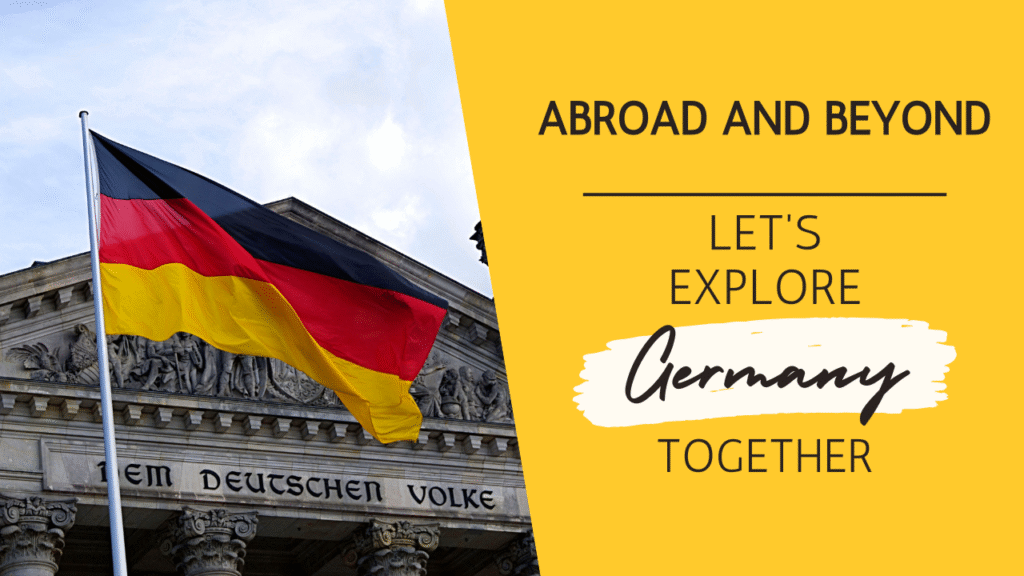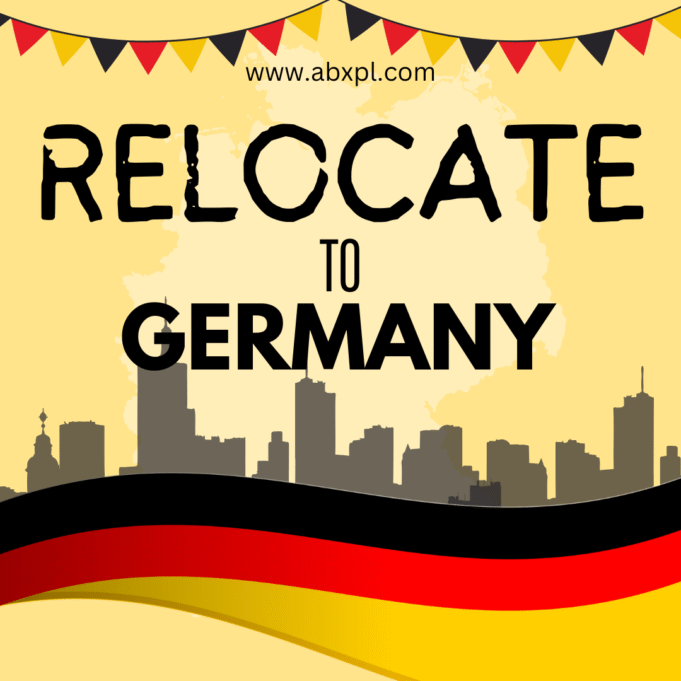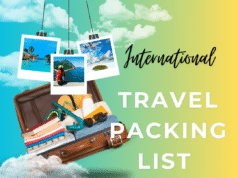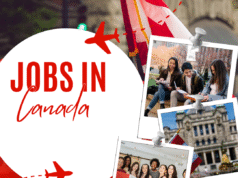If you want to Relocate to Germany, whether as a student, digital nomad, skilled worker, or budget traveler seeking international opportunities, this ultimate guide covers everything you need to know. From visa requirements and work permits to the cost of living, housing options, cultural insights, and relocation checklists, you’ll discover practical steps to make your move smooth and successful. Relocate to Germany with clarity — whether for career growth, affordable travel, or a new lifestyle abroad.
Why Relocate to Germany in 2025?
Germany continues to be a top destination for expats, job seekers, digital nomads, and students. By choosing to relocate to Germany, you gain access to:
- A strong economy with high-paying job opportunities.
- Excellent healthcare and public infrastructure.
- Affordable travel across Europe.
- A thriving digital nomad and startup community.
- A rich cultural and historical environment.

Visa and Immigration Options to Relocate to Germany
One of the most important steps to relocate to Germany is choosing the right visa. Full visa requirements can be found at the German Federal Foreign Office.
Common Visa Options
- Work Visa for Professionals — For skilled workers with job contracts.
- EU Blue Card — For highly skilled professionals with recognized qualifications.
- Job Seeker Visa — A 6-month visa to search for employment in Germany.
- Freelance Visa — Ideal for digital nomads, creatives, and self-employed professionals.
- Student Visa — For those pursuing education in German universities.
- Family Reunion Visa — For spouses, children, and relatives of German residents.
Application Process
- Identify which visa fits your purpose.
- Collect documents: contracts, bank statements, insurance, degrees.
- Book a consular appointment.
- Apply for residence permits once in Germany.
Cost of Living: Budget Planning to Relocate to Germany
Budgeting is critical when you plan to relocate to Germany. According to Numbeo, the average monthly expenses range from €1,200–€2,600 depending on the city.
Monthly Costs Breakdown (H3)
- Rent: €350–€900 in shared flats; €1,000+ for apartments in big cities.
- Utilities & Internet: €120–€250.
- Groceries & Food: €200–€350.
- Public Transport: €60–€120 (monthly pass).
- Health Insurance: Mandatory; contributions based on income.
Tip: Smaller cities like Leipzig or Dresden offer cheaper living than Munich or Frankfurt — great for digital nomads and students.
Housing and Accommodation: Where to Live
When you relocate to Germany, your housing choices depend on budget and lifestyle.
Housing Options
- Shared Housing (Wohngemeinschaft or WG): Affordable, common among students and young professionals.
- Short-Term Rentals: Ideal for digital nomads and newcomers testing cities.
- Family-Friendly Neighborhoods: Choose suburban areas with good schools.
- Urban City Centers: Great for expats in tech, finance, or creative industries.
Healthcare and Insurance: Stay Protected
Healthcare is mandatory for everyone who relocates to Germany. Learn more on Expatica Healthcare Guide.
Key Points
- Public Health Insurance (GKV): Standard for most employees.
- Private Health Insurance (PKV): Available for high earners and freelancers.
- Coverage Includes: Hospital visits, doctors, specialists, and sometimes dental.
Work Opportunities: Jobs for Expats & Nomads
Germany is one of Europe’s strongest job markets. By planning to relocate to Germany for work, you can explore:
Career Paths
- IT & Engineering Jobs — High demand for skilled workers.
- Healthcare Professions — Nurses and doctors are sought after.
- Education & Research — Teaching and university positions.
- Freelance & Remote Jobs — Perfect for digital nomads.
Check job listings at Make it in Germany for up-to-date opportunities.
Relocate to Germany as a Digital Nomad
Germany has become a hub for digital nomads thanks to its coworking spaces, reliable internet, and central European location. The freelance visa is ideal for digital workers in writing, design, marketing, and IT.
Nomad Hotspots
- Berlin: Creative hub with thriving startup culture.
- Munich: Strong for tech professionals and international business.
- Leipzig & Dresden: Affordable, with growing remote work communities.
Travel & Connectivity in Germany
Relocating doesn’t just mean living — it’s also about exploring. With Germany’s central location, budget travelers can easily explore Europe. Low-cost airlines and rail networks make weekend trips accessible. You can explore our International Travel Packing List Guide
Cultural Insights: Adjusting to Life in Germany
When you relocate to Germany, understanding culture ensures smooth integration.
Key Cultural Notes (H3)
- Language: Learning German improves career and social opportunities.
- Punctuality: Highly valued in business and personal life.
- Club Culture (Verein): Sports and hobby clubs help you make friends.
- Work-Life Balance: Germans value efficiency but also leisure.
Step-by-Step Checklist for Relocate to Germany
- Choose visa type and gather documents.
- Apply for visa at German consulate.
- Book short-term housing.
- Buy health insurance.
- Register address (Anmeldung).
- Open a German bank account.
- Apply for residence permit.
Relocate to Germany — FAQs
Q: Can I move without a job offer?
Yes, the Job Seeker Visa allows you to search for work while in Germany.
Q: Is Germany affordable for students?
Yes, many universities have low or no tuition fees, but budget for living costs.
Q: Do digital nomads pay taxes in Germany?
Yes, freelancers and self-employed must register with German tax authorities.
Q: How long does visa processing take?
Typically 6–12 weeks depending on visa type and your location.
Conclusion
If your plan is to Relocate to Germany for work, study, digital nomad life, or budget-friendly travel, this guide provides the blueprint for success. From choosing the right visa and planning your budget to adjusting to cultural life and exploring international job opportunities, Germany offers an excellent balance of stability, opportunity, and adventure. Relocate to Germany today with confidence, and step into one of Europe’s most dynamic and welcoming environments.







